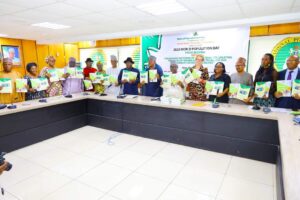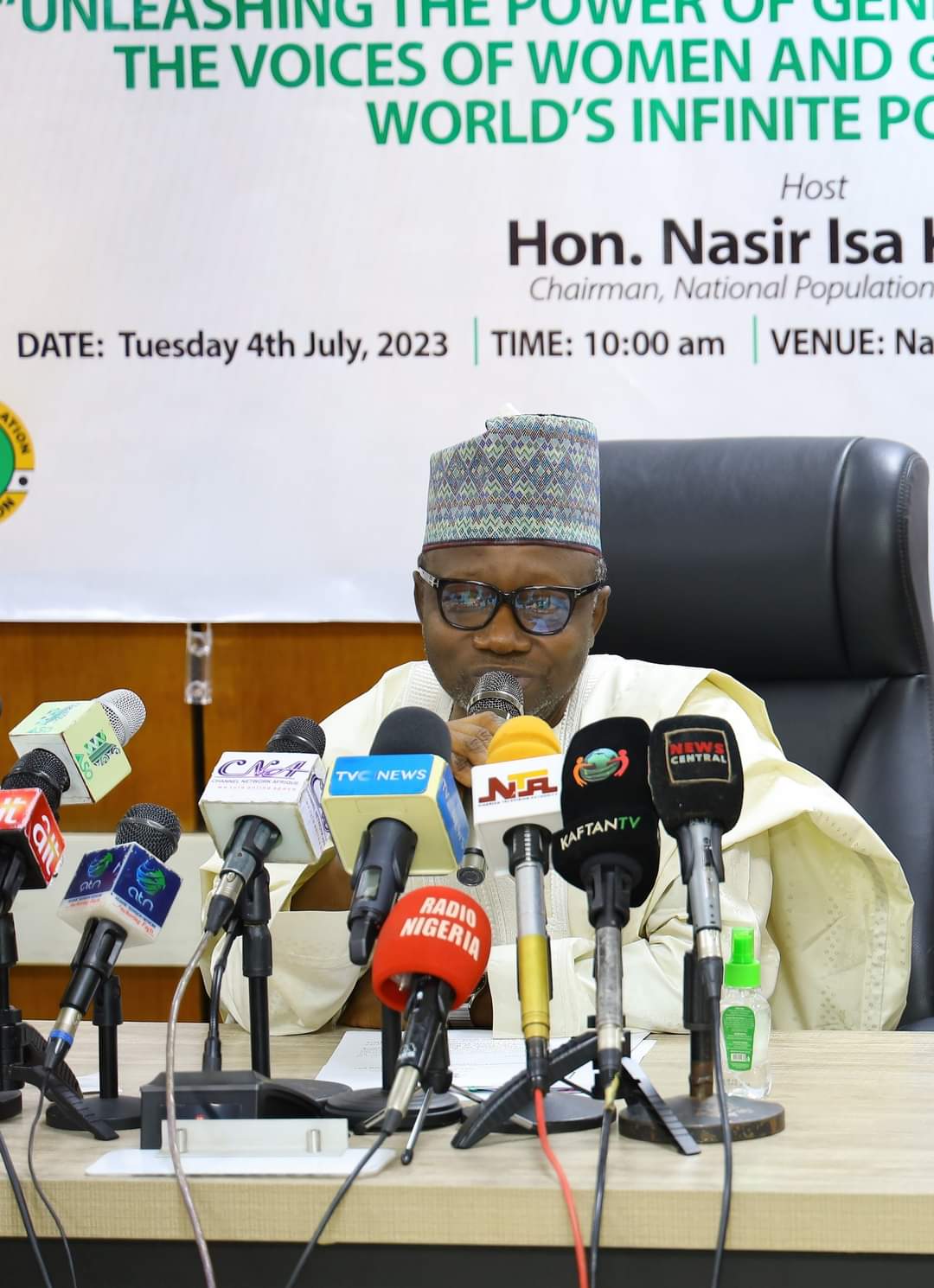VOICE AIR MEDIA News Update
THE Chairman of the National Population Commission (NPC), Nasir Isa Kwarra, has called on the government and critical stakeholders to create opportunities that empower women and girls for a secure future for all.
Kwarra made the call on Tuesday in Abuja at a media briefing in commemoration of the 2023 World Population Day (WPD) with the theme “Unleashing the Power of Gender Equality: Uplifting the Voices of Women and Girls to Unlock Our World’s Infinite Possibilities.”
He pointed out that the context of this year’s commemoration is a reminder that arouses attention and which requires actions that will facilitate the sustainable creation of opportunities that will empower women and girls for a secure future for all.
He observed with dismay that
women and girls, who represent almost 49.7% of Nigeria’s entire population, are more often than not neglected across all societies and communities, as they are not accorded the deserved attention.
He said: “Addressing the perspectives of women and girls’ Rights and Choices to pave way for achieving Sustainable Development Goal 5 “Achieving Gender Equity” – entails “Securing unlimited access to quality formal education and to be well-educated in Science, Technology, Engineering and Mathematics (STEM), including acquiring livelihood skills and entrepreneurship.
“Securing planned and organised access to decent work and employment outside the home and enjoying equal wages at par with their male counterparts to achieve economic empowerment.
“Involvement in decision-making roles in many aspects of life, including leadership positions; undisruptive access to quality and affordable health care services including maternity services plus sexual and reproductive health care services.
“Protection from marginalization and exclusivity at all levels, space and spheres; and to enjoy life/living free from all forms of discriminatory laws, customs/norms and culture that limit their potentials including protection from gender-based violence and harmful practices like early/child/forced marriages that most time, result in unintended pregnancies that usually disrupt their education (most times for life), as well as expose their bodies to incontinent/inconvenience like Fistula and maternal deaths.
“The right to reproductive choices – chose when to marry, when to start having children, decide freely the number and spacing of children without any coercion or compulsion and discrimination; which is embedded in –
Rights to correct, detailed information about equitable access to family planning and family health and life education (in the language and terms they understand to help make informed choices).”

Kwarra, therefore, called on the government, parliamentarians at all levels, stakeholders, the civil society organisations; traditional and religious leaders, the media, donors and development partners to secure and guarantee the empowerment of women and girls by lifting their voices across the nation so that they can be heard, acknowledged and responded to.
According to him, “the responsibility lies first with the government to prioritise decisions and actions that provide women and girls all the opportunities through education, health-care services, jobs, resources and services to guarantee their exercising these Rights and Choices.
“This is inclusive of those living with disabilities, irrespective of where they reside.”
Also speaking, Ms Ulla Mueller, Country Representative, United Nations Population Fund (UNFPA) restated the commitment of the UN to supporting the call for women’s empowerment.
Mueller pointed out that only women’s proper access to education and family planning would break the cycle of poverty.
She called for a change in the narrative of gender norms that had denied women access to equality, adding that the narrative would pave the way for genuine empowerment.
When women and girls are granted the opportunity for bodily autonomy, their families flourish.
“We call on all to partner with our goal to achieve women’s empowerment. I hope if we get access to family planning, it would reverse maternal mortality,” she said.
Mr Olufunsho Adebiyi, Permanent Secretary, the Federal Ministry of Health, said that the theme of World Population Day was apt, noting that the current 8 billion world population need to be developed by giving voices to women and girls.
Adebiyi, represented by Dr John Ovuoraye,
said that the existing gender norms should be addressed to dismantle prejudices that affect women negatively.
The Permanent Secretary said that mainstreaming gender in policies to empower women is imperative for national and global development.
According to him, equal representation provides a strong foundation for empowerment of women and girls.
Dr Ejike Oji, Chairman Technical Management Committee, Association for the Advancement of Family Planning (AAFP) said that women and girls were disproportionately affected.
Oji identified education of the young girls as key to reducing poverty and strengthening family planning.
“We need to, as a matter of necessity, make family planning a priority,” he said.
Dr Okai Aku, Executive Director, Planned Parenthood Federation of Nigeria (PPFN) described the federation as implementors of family planning services at the grassroots.
Okai said that family planning was key the 17 Sustainable Development Goals (SDGs).



